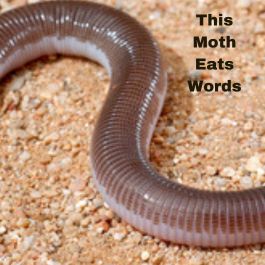The Exeter Book is an Anglo-Saxon collection of puzzle poems. Riddle 47, which I’d like to focus on for this episode is one of the more famous, Thanks to the Saga Thing podcast for reading it on a recent episode about the lacuna in the saga they are following.
A moth ate words. I thought that was a marvelous fate,
that the worm, a thief in the dark, should eat
a man’s words — a brilliant statement,
its foundation strong. Not a whit the wiser
was he for having fattened himself on those words.
(George Philip Krapp and Elliott Van Kirk Dobbie (eds), The Exeter Book, The Anglo-Saxon Poetic Records, 3 (New York: Columbia University Press, 1936))
There was, in the Fourth Edition version of The Mysteries, a ritual that allowed magi to study by eating books. (Consumption of the Logos, pp.95-6). With sufficient vis, this ritual, a high Muto Mentem total and a lack of devotion to personal safety, a character can engineer one of the swiftest experience mills in the game. At tis simplest, the magus could transform themselves into a giant bookworm, so that the process of eating books is less onerous. Given that the smell of old paper books is caused by the release of vanillin, I imagine they are delicious.
Taking this a step further, a magus can arrange for their familiar to do the actual eating. Let’s imagine a Criamon magus finds a bookworm, enlarges it, and then binds that. For statistics, see the dragons in the Soqotra chapter of Rivals of Hermes. Their physical description is based on an indigenous variety of worm lizard. They are legless and clearly not snakes.
There’s a problem here: In early editions of the game a familiars started with an intelligence equal to one les than the magus, and whatever either partner learned the other automatically knew. So, if you read a book on Hermetic Jurisprudence, you cat would be able to argue with you about it. In 5th edition, familiars start with a base Intelligence of -3, and although they can learn Abilities, they have to put some effort in. They don’t get experience from the books you read, and Jerbiton magi are not ridiculously competent when it comes to walking along the tops of fences. Familiars cannot lean magic, although they can arguably learn Exceptional Abilities.
The way to work around this is to make sure the magus’s mind is in the bookwormwhen it wats the book. Can a magus use the shared senses modification in the silver silver cord, so that the familiar’s experiences are simultaneously granted to the magus? Does this break the ritual because the target is a single mind, not a group? Some magi are able to swap bodies with their familiars, which is as good as a transformation..
If you have a true bookworm, then this leads to other questions based on its life cycle. What happens when the bookworm makes a cocoon out of books? What does it learn when it is reduced to goo and reborn? Can a magus following the Path of the Body skip the Imitiation where they lie in a glass coffin for a season, if they know what it is like to be reduced to soup and reborn?
